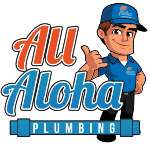Drain clogs can lead to serious water damage in Carefree homes. This guide offers expert strategies to prevent blockages and maintain smooth-flowing plumbing systems. We’ll explore common causes of clogs, share effective maintenance tips, and discuss proper disposal practices. You’ll learn about preventive devices and how to educate your household on drain care. By following these tips from Arizona plumbing experts, you can avoid costly repairs and keep your drains free from debris.
Key Takeaways
- Hard water buildup, local vegetation, and improper disposal contribute to drain clogs in Carefree homes
- Regular maintenance and natural cleaning methods prevent clogs and extend plumbing system lifespan
- Proper disposal practices for grease, oils, and hygiene products are crucial for drain health
- Installing preventive devices like drain screens and backwater valves protects against clogs and backups
- Professional drain cleaning services are necessary for persistent issues and offer comprehensive system evaluations
Understanding the Common Causes of Drain Clogs in Carefree Homes
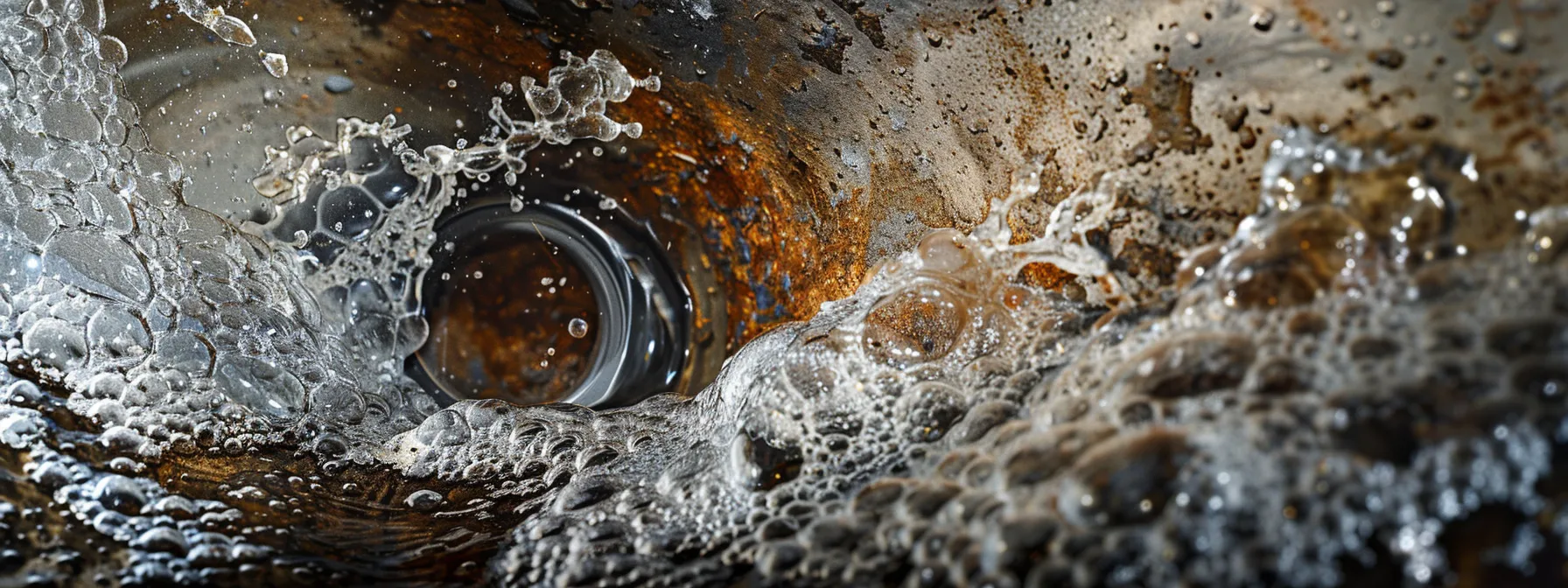
Drain clogs in Carefree homes often result from hard water buildup, local plant life affecting outdoor drains, and improper disposal of everyday items. Understanding these causes is crucial for maintaining proper kitchen hygiene and preventing plumbing issues. This section explores the effects of hard water on plumbing systems, the impact of vegetation on drains, and common household items that should never enter the drainage system, including petroleum-based products and reverse osmosis waste.
Effects of Hard Water on Plumbing Systems
Hard water in Carefree homes can significantly impact plumbing systems, leading to frequent drain clogs. The high mineral content, particularly calcium and magnesium, forms scale deposits inside pipes and fixtures. These deposits gradually narrow the water flow path, reducing water pressure and increasing the likelihood of clogs in sinks and septic tanks.
Regular maintenance is crucial to combat the effects of hard water on plumbing systems. Homeowners in Carefree’s zip code area should consider installing water softeners to reduce mineral buildup. Additionally, using bacteria-based cleaning products can help break down organic matter in drains, preventing clogs and maintaining a healthy septic system.
Impact of Local Plant Life on Outdoor Drains
In Carefree, local plant life significantly impacts outdoor drains, causing clogs and backflow issues. Tree roots, attracted to moisture, often infiltrate and damage underground pipes, while fallen leaves and debris from desert plants can accumulate in gutters and drain openings. Homeowners should engage a skilled technician to inspect and maintain their outdoor drainage systems regularly.
To mitigate these issues, residents can implement preventive measures such as installing root barriers and gutter guards. Additionally, using environmentally friendly detergents and avoiding flushing paper products down toilets can help maintain healthy septic systems. These practices, common throughout the United States, are particularly crucial in Carefree’s unique desert environment.
Everyday Items That Should Never Go Down the Drain
Carefree homeowners should avoid disposing of certain everyday items down their drains to prevent clogs. Grease, cooking oils, and fats solidify in pipes, causing blockages that can contaminate drinking water. Coffee grounds, eggshells, and paper products, including paper towels and wipes, should never be flushed or washed down sinks.
Other items to keep out of drains include hair, dental floss, and cotton swabs, which can tangle around pipe joints and trap debris. Household chemicals, paint, and medication should never enter the waste system, as they can harm the environment and water supply. Instead, residents should use designated disposal methods or consult a professional plumber for safe removal of these substances.
Implementing Regular Maintenance to Keep Drains Clear
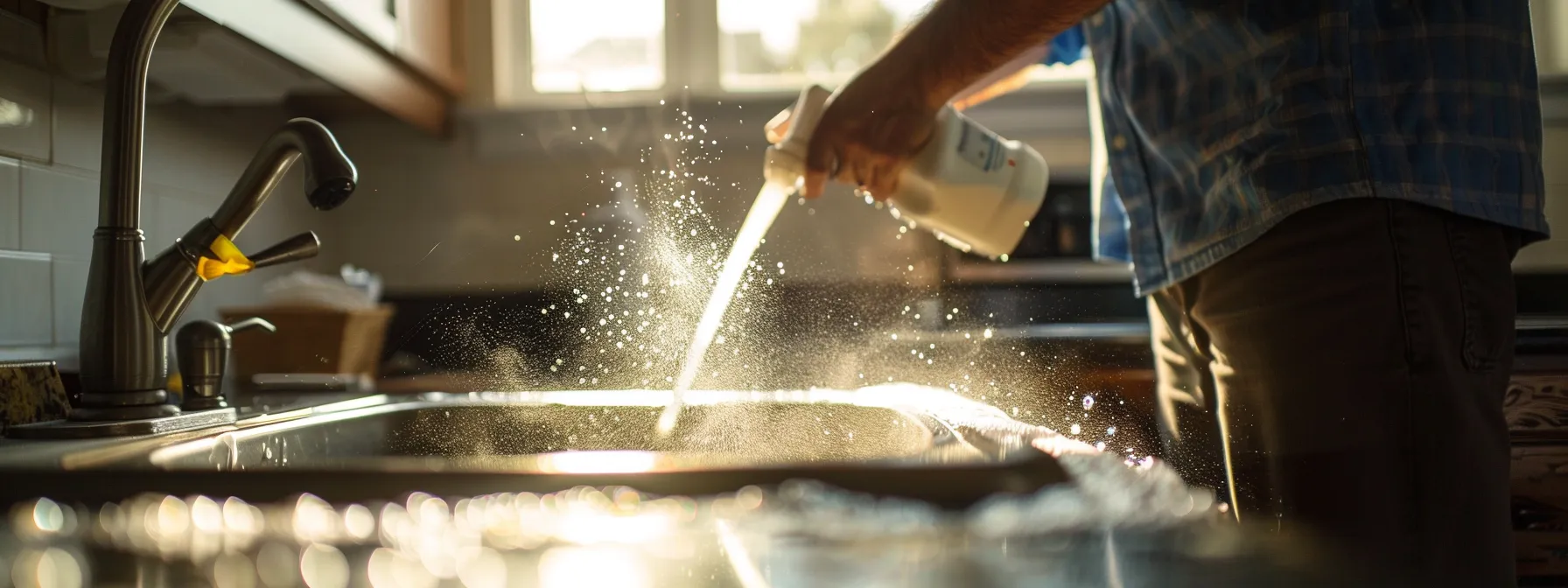
Regular maintenance is crucial for preventing drain clogs in Carefree homes. Establishing a routine cleaning schedule, using natural enzyme-based cleaners, and inspecting drains for early signs of blockage are effective strategies. These methods help maintain proper water flow, reduce the need for harsh chemicals, and extend the life of plumbing systems. Homeowners can benefit from improved customer service and water softening techniques to address common issues.
Establishing a Routine Drain Cleaning Schedule
Establishing a routine drain cleaning schedule is essential for Carefree homeowners to prevent clogs and maintain optimal plumbing performance. Regular cleaning can be accomplished using natural methods such as boiling water, vinegar, and enzyme-based cleaners. These techniques help break down accumulated debris and prevent the buildup of grease and other substances that can lead to blockages.
Homeowners should consider incorporating drain cleaning into their regular home maintenance routine, performing basic cleaning tasks weekly and more thorough cleanings monthly. This proactive approach can help identify potential issues early, such as slow drains or unusual odors, which may indicate the need for professional intervention. By consistently maintaining drains, residents can avoid costly repairs and extend the lifespan of their plumbing systems, including heat pumps and other water-related appliances.
- Weekly: Flush drains with boiling water
- Monthly: Use enzyme-based cleaners for deep cleaning
- Quarterly: Inspect visible plumbing components
- Annually: Schedule professional drain cleaning service
Utilizing Natural Enzyme-Based Drain Cleaners
Natural enzyme-based drain cleaners offer an effective and environmentally friendly solution for maintaining clear pipes in Carefree homes. These products contain beneficial bacteria that break down organic matter, preventing clogs and reducing the risk of sewage backups. Homeowners can use these cleaners regularly as part of their maintenance routine to minimize emergency plumbing situations and extend the life of their pipes.
Unlike harsh chemical cleaners, enzyme-based solutions do not cause corrosion or damage to plumbing systems. This gentle approach not only protects the pipes but also ensures customer satisfaction by providing a safe and sustainable option for drain maintenance. By incorporating these natural cleaners into their regular plumbing care, Carefree residents can maintain optimal pipe function and reduce the frequency of professional interventions.
Inspecting Drains for Early Signs of Blockage
Regular inspections of drains in Carefree homes can reveal early signs of blockage, preventing costly renovations and major plumbing issues. Homeowners should watch for slow drainage, gurgling sounds, and unpleasant odors, which often indicate the accumulation of fat and oil in pipes or toilet malfunction. These simple observations can help identify problems before they escalate into severe clogs or backups.
For a more thorough assessment, professional plumbers can utilize specialized cameras to examine the interior of pipes, detecting potential blockages or damage that may not be visible from the surface. This proactive approach allows for timely interventions, such as removing buildup or addressing minor issues before they require extensive repairs. By implementing regular inspections, Carefree residents can maintain optimal drain function and avoid unexpected plumbing emergencies.
Adopting Proper Disposal Practices to Prevent Clogs
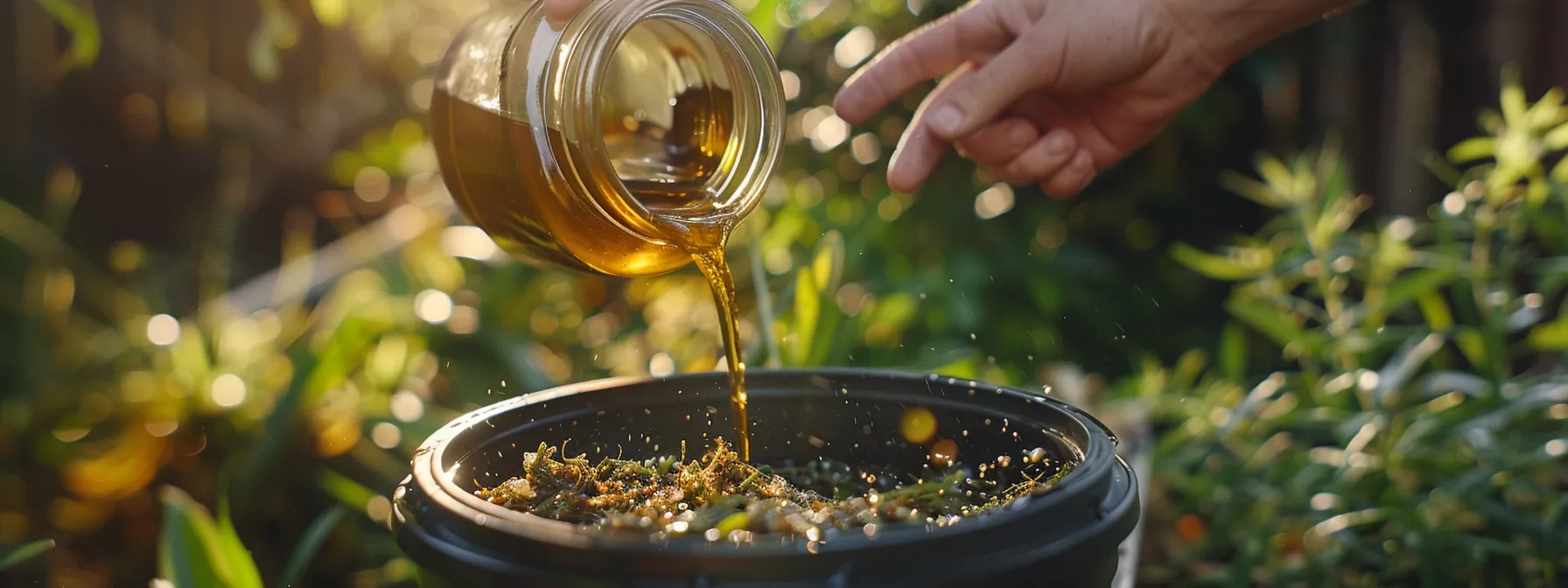
Proper disposal practices are essential for preventing drain clogs in Carefree homes. This section explores effective methods for handling grease, cooking oils, and hygiene products to maintain healthy plumbing systems. It also discusses composting as an eco-friendly alternative for food waste disposal, reducing strain on kitchen drains and dishwashers while promoting sustainable water usage and filtration practices.
Correctly Disposing of Grease and Cooking Oils
Proper disposal of grease and cooking oils is crucial for preventing clogs in Carefree homes. Homeowners should never pour these substances down drains or toilets, as they solidify and accumulate in pipes, leading to severe blockages. Instead, residents can collect cooled grease and oils in sealed containers for disposal with regular trash or at designated recycling centers.
For small amounts of oil residue, wiping pans with paper towels before washing can significantly reduce the risk of clogs. Regular leak detection and maintenance of kitchen taps can also prevent the accumulation of grease in drain pipes. By adopting these practices, homeowners can maintain clear plumbing systems and avoid costly repairs associated with stubborn grease-related clogs.
Safe Ways to Dispose of Hygiene Products
Proper disposal of hygiene products is crucial for preventing drain clogs in Carefree homes. Residents should never flush items such as cotton swabs, dental floss, or feminine hygiene products down toilets or sinks. These items can accumulate in pipes, causing blockages and potentially damaging septic systems. Instead, homeowners should dispose of these products in designated trash receptacles, reducing the risk of clogs and unpleasant odors in bathrooms.
For items that come into contact with food or bodily fluids, such as disposable wipes or dental floss, it’s essential to use sealed bags before placing them in the trash. This practice helps contain odors and prevents contamination. Homeowners with reverse osmosis systems should be particularly cautious, as these filtration devices can be sensitive to improper waste disposal. By implementing these safe disposal methods, residents can maintain their plumbing systems’ integrity and avoid costly bathtub or sink backups.
Composting as an Alternative for Food Waste
Composting offers Carefree homeowners an eco-friendly alternative for food waste disposal, reducing the strain on kitchen drains and grease traps. By diverting organic matter from the plumbing system, residents can prevent clogs and minimize the need for frequent pump maintenance. This practice also helps control mold growth in pipes and reduces the workload on air conditioning systems by decreasing the overall waste heat generated in homes.
Implementing a composting routine requires an initial inspection of outdoor spaces to identify suitable locations for compost bins. Homeowners can start by collecting fruit and vegetable scraps, coffee grounds, and eggshells, which would otherwise contribute to drain blockages. As an added benefit, the resulting compost can be used to enrich garden soil, promoting healthier plant growth and reducing water consumption in Carefree’s arid climate.
Installing Preventive Devices to Protect Your Drains
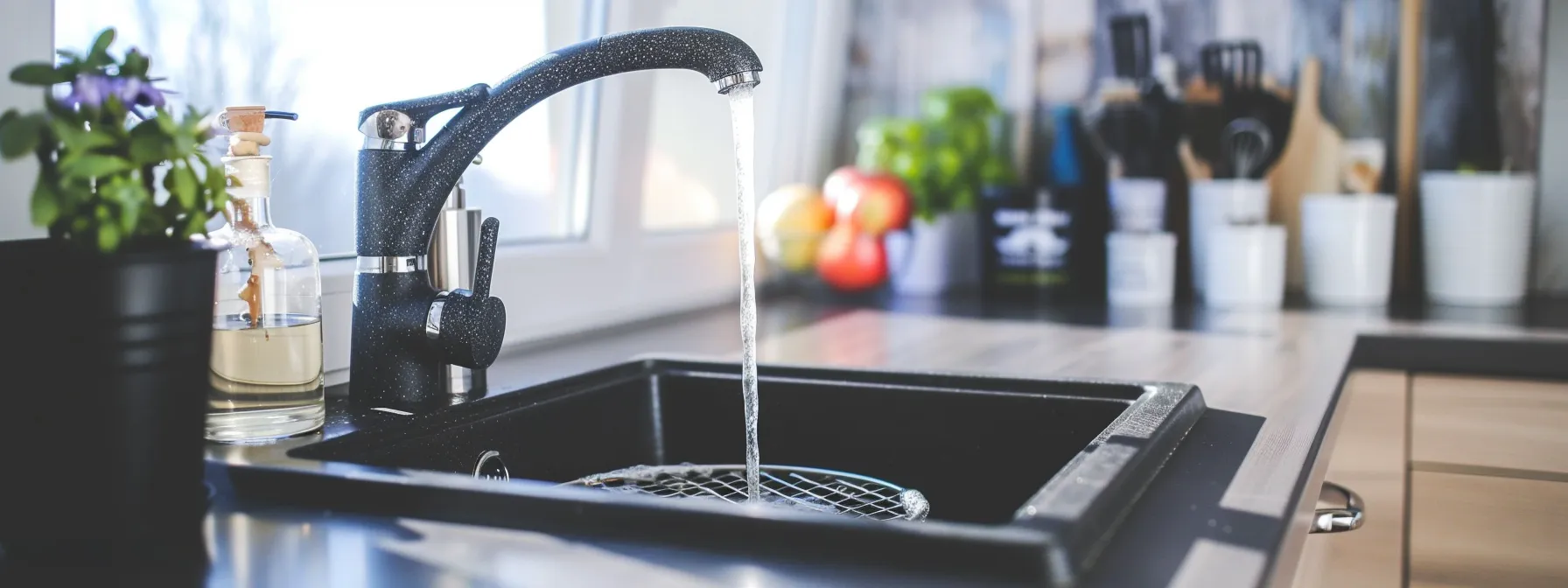
Installing preventive devices is crucial for protecting drains in Carefree homes. Drain screens and hair catchers effectively trap debris, while properly installed garbage disposals manage food waste. Backwater valves offer protection against sewage backups. These devices reduce the need for plungers, extend tank life, and may be covered under warranty, ultimately saving energy and preventing soap scum buildup.
Using Drain Screens and Hair Catchers
Drain screens and hair catchers serve as effective barriers against debris in Carefree homes, particularly in showers where hair and skin particles can accumulate. These simple devices prevent clogs by capturing materials before they enter the plumbing system, reducing the strain on pipes and washing machines connected to the same drainage network.
Installing drain screens in kitchen sinks also helps protect garbage disposals from excessive food waste, maintaining optimal water pressure throughout the home. For outdoor drains, specialized covers can prevent root intrusion, a common issue in Carefree’s arid climate that often leads to severe blockages and costly repairs.
Installing Garbage Disposals Properly
Proper installation of garbage disposals is crucial for preventing drain clogs in Carefree homes. Homeowners should ensure that the disposal unit is correctly sized for their household needs and securely connected to the sink drain. A professional plumber can assess the existing plumbing system and recommend the most suitable disposal model, considering factors such as water pressure and pipe capacity.
Regular maintenance of garbage disposals, including running cold water during and after use, can significantly reduce the risk of clogs. Carefree Plumbing Services recommends avoiding harsh drain cleaners, which can damage disposal components and pipes. Instead, homeowners should use natural methods like grinding ice cubes or citrus peels to clean the unit and maintain optimal performance.
Benefits of Backwater Valves in Carefree Homes
Backwater valves offer crucial protection for Carefree homes against sewage backups and flooding. These devices prevent wastewater from flowing back into the house during heavy rains or sewer system overloads, safeguarding the property and its occupants from health hazards and costly damage. By installing backwater valves, homeowners can maintain proper drainage and reduce the risk of contamination in their plumbing systems.
Professional plumbers in Carefree recommend backwater valves as a cost-effective solution for long-term drain protection. These devices require minimal maintenance and can significantly extend the lifespan of a home’s plumbing infrastructure. Homeowners who invest in backwater valves often experience improved water pressure and reduced instances of foul odors emanating from drains, contributing to a more comfortable living environment.
Educating the Household on Drain Care Best Practices
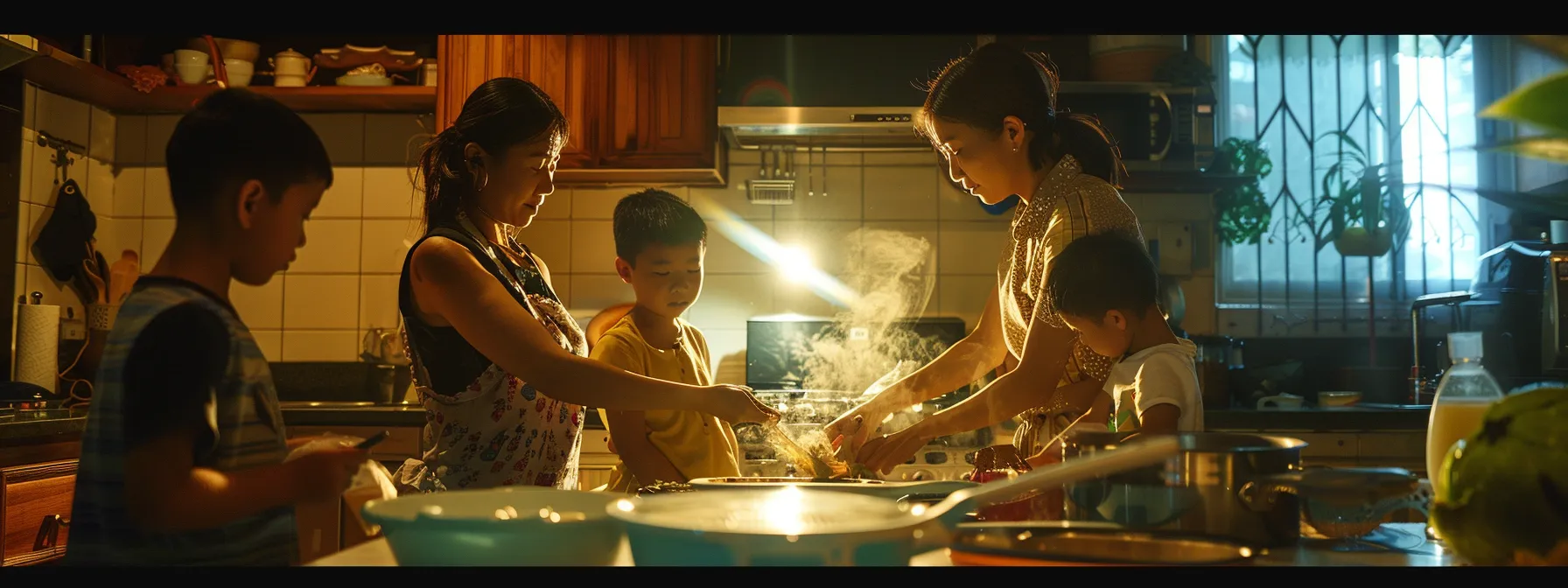
Educating household members on drain care best practices is crucial for preventing clogs in Carefree homes. This section covers teaching children about drain safety, implementing kitchen habits that reduce clog risks, and recognizing slow drains promptly. By adopting these practices, families can maintain healthy plumbing systems and avoid costly repairs.
Teaching Children About Drain Safety
Teaching children about drain safety is crucial for maintaining a healthy plumbing system in Carefree homes. Parents can start by explaining the purpose of drains and why certain items should never be flushed or washed down sinks. Simple demonstrations, such as showing how hair can clog a drain, help children understand the importance of proper disposal practices.
Families can create engaging activities to reinforce drain safety lessons. For example, a scavenger hunt to identify items that belong in the trash rather than the drain can make learning fun and memorable. By instilling good habits early, parents help prevent future plumbing issues and foster a sense of responsibility in their children for maintaining a well-functioning home.
Kitchen Habits That Reduce the Risk of Clogs
Adopting proper kitchen habits can significantly reduce the risk of drain clogs in Carefree homes. Residents should scrape food scraps into the trash or compost bin before washing dishes, preventing solid particles from entering the drain. Using strainers in sink openings catches small food particles and other debris, keeping them out of the plumbing system.
Regular cleaning of kitchen drains with a mixture of baking soda and vinegar helps prevent buildup and maintains proper flow. Homeowners should also avoid pouring cooking oils and fats down the drain, instead collecting them in containers for proper disposal. These simple habits can prevent costly plumbing issues and extend the life of kitchen plumbing fixtures.
Recognizing and Responding to Slow Drains Promptly
Recognizing slow drains early is crucial for preventing severe clogs in Carefree homes. Homeowners should watch for signs such as water pooling around drain openings, gurgling sounds, or unpleasant odors emanating from sinks and showers. These indicators often signal the beginning of a blockage that, if left unaddressed, can lead to more significant plumbing issues.
Prompt response to slow drains can save Carefree residents time and money on extensive repairs. Homeowners can start by using a plunger or a mixture of baking soda and vinegar to clear minor blockages. If these methods prove ineffective, it’s advisable to contact a professional plumber to inspect and clean the drains thoroughly, preventing potential damage to the plumbing system.
- Monitor water drainage speed in sinks and showers
- Listen for unusual sounds coming from drains
- Check for foul odors near plumbing fixtures
- Use simple home remedies for minor clogs
- Seek professional help for persistent drainage issues
When to Seek Professional Drain Cleaning Services in Carefree
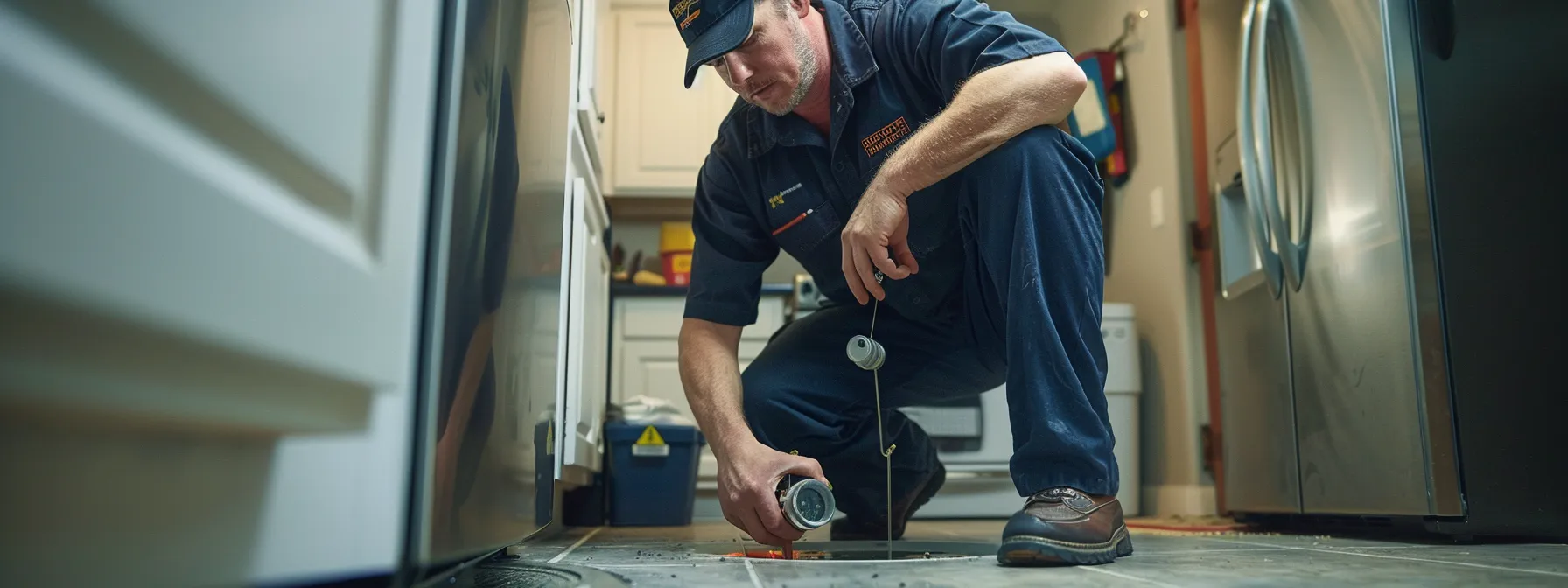
Professional drain cleaning services in Carefree become necessary when homeowners face persistent plumbing issues. This section examines signs that require expert attention, the benefits of professional inspections, and how to select a reliable drain cleaning service. Understanding these aspects helps residents maintain their plumbing systems effectively and prevent costly repairs.
Identifying Signs That Require Expert Attention
Carefree homeowners should be alert to several signs that indicate the need for professional drain cleaning services. Persistent slow drainage, recurring clogs, and foul odors emanating from drains are clear indicators that expert attention is required. These issues often suggest more severe blockages deep within the plumbing system that DIY methods cannot effectively address.
Other signs that warrant professional intervention include gurgling sounds from drains, water backing up in sinks or tubs, and multiple clogged fixtures throughout the home. If residents notice any of these symptoms, they should promptly contact a licensed plumber to prevent potential water damage and ensure the longevity of their plumbing system. Early detection and professional treatment can save homeowners from costly repairs and renovations in the future:
- Persistent slow drainage in multiple fixtures
- Recurring clogs that resist DIY solutions
- Foul odors emanating from drains
- Gurgling sounds when water drains
- Water backing up in sinks, tubs, or showers
- Multiple clogged fixtures throughout the home
Advantages of Professional Drain Inspections
Professional drain inspections offer Carefree homeowners significant advantages in maintaining their plumbing systems. These expert evaluations use advanced technology, such as camera inspections, to identify hidden issues within pipes that may not be visible from the surface. By detecting problems early, homeowners can address potential clogs or damage before they escalate into costly repairs.
Regular professional inspections also provide homeowners with a comprehensive understanding of their plumbing system’s overall health. Plumbers can assess the condition of pipes, identify areas prone to blockages, and recommend preventive measures tailored to the specific needs of Carefree homes. This proactive approach helps extend the lifespan of plumbing systems and ensures optimal performance, ultimately saving homeowners time and money in the long run.
Choosing the Right Drain Cleaning Service in Carefree
Selecting the right drain cleaning service in Carefree requires careful consideration of several factors. Homeowners should look for licensed and insured professionals with a proven track record in the area. It’s essential to choose a company that offers transparent pricing, provides detailed estimates, and uses modern equipment for efficient and effective drain cleaning.
Residents should also consider the range of services offered by the drain cleaning company. A reputable service provider will offer comprehensive solutions, including regular maintenance, emergency services, and advanced diagnostic techniques. Reading customer reviews and seeking recommendations from neighbors can help Carefree homeowners make an informed decision when choosing a drain cleaning service:
- Verify licensing and insurance
- Check for transparent pricing and detailed estimates
- Ensure the use of modern equipment and techniques
- Consider the range of services offered
- Read customer reviews and seek local recommendations
- Evaluate the company’s response time and availability
Conclusion
Preventing drain clogs in Carefree homes requires a multifaceted approach that combines regular maintenance, proper disposal practices, and the use of preventive devices. By understanding common causes of clogs, implementing routine cleaning schedules, and adopting safe disposal habits, homeowners can significantly reduce the risk of plumbing issues. Educating household members on drain care best practices and recognizing signs that require professional attention are crucial steps in maintaining a healthy plumbing system. Ultimately, these strategies not only prevent costly repairs but also contribute to a more efficient and sustainable home environment in Carefree.

